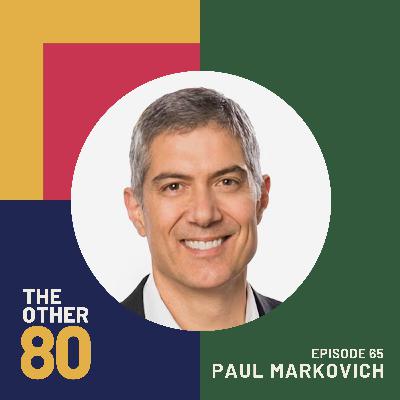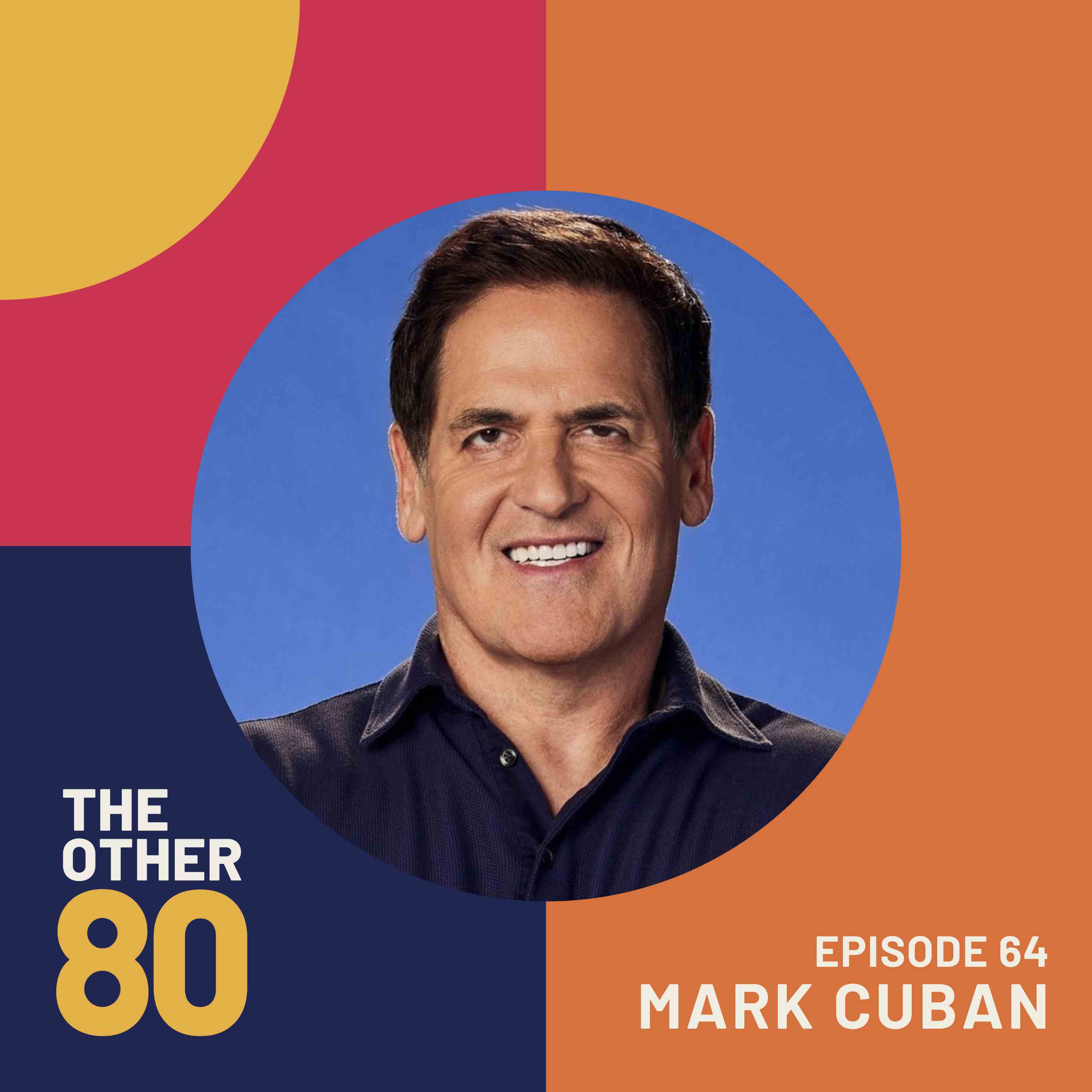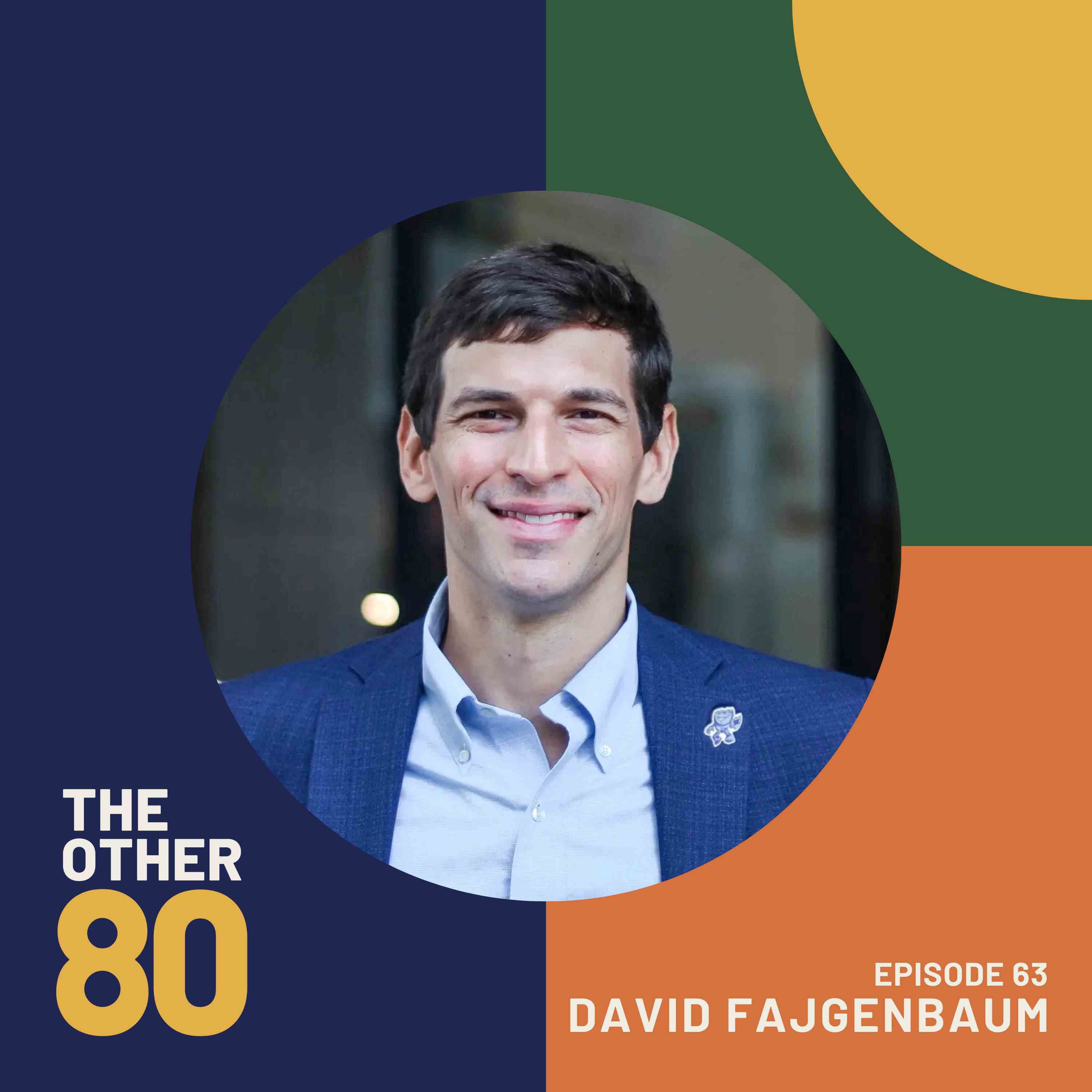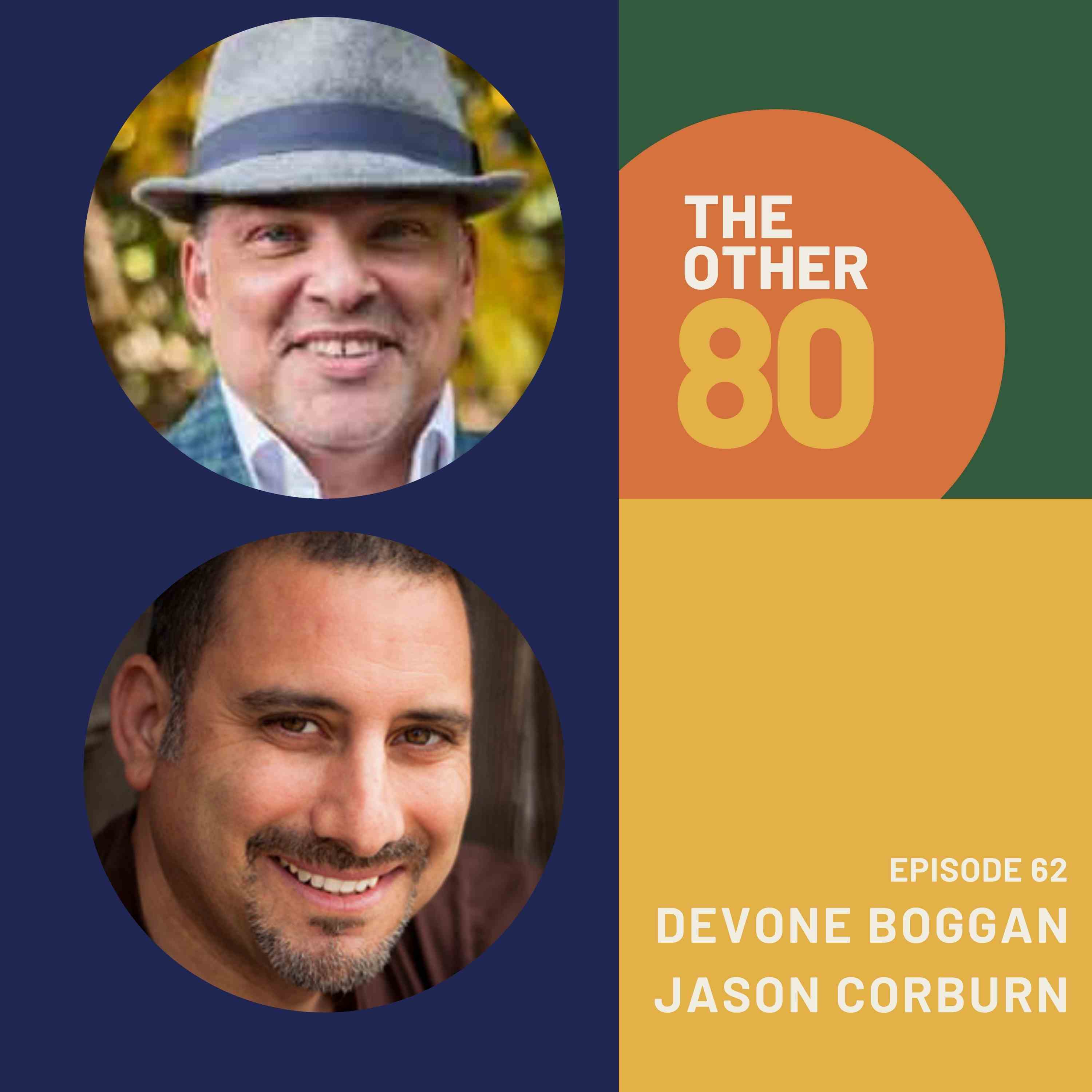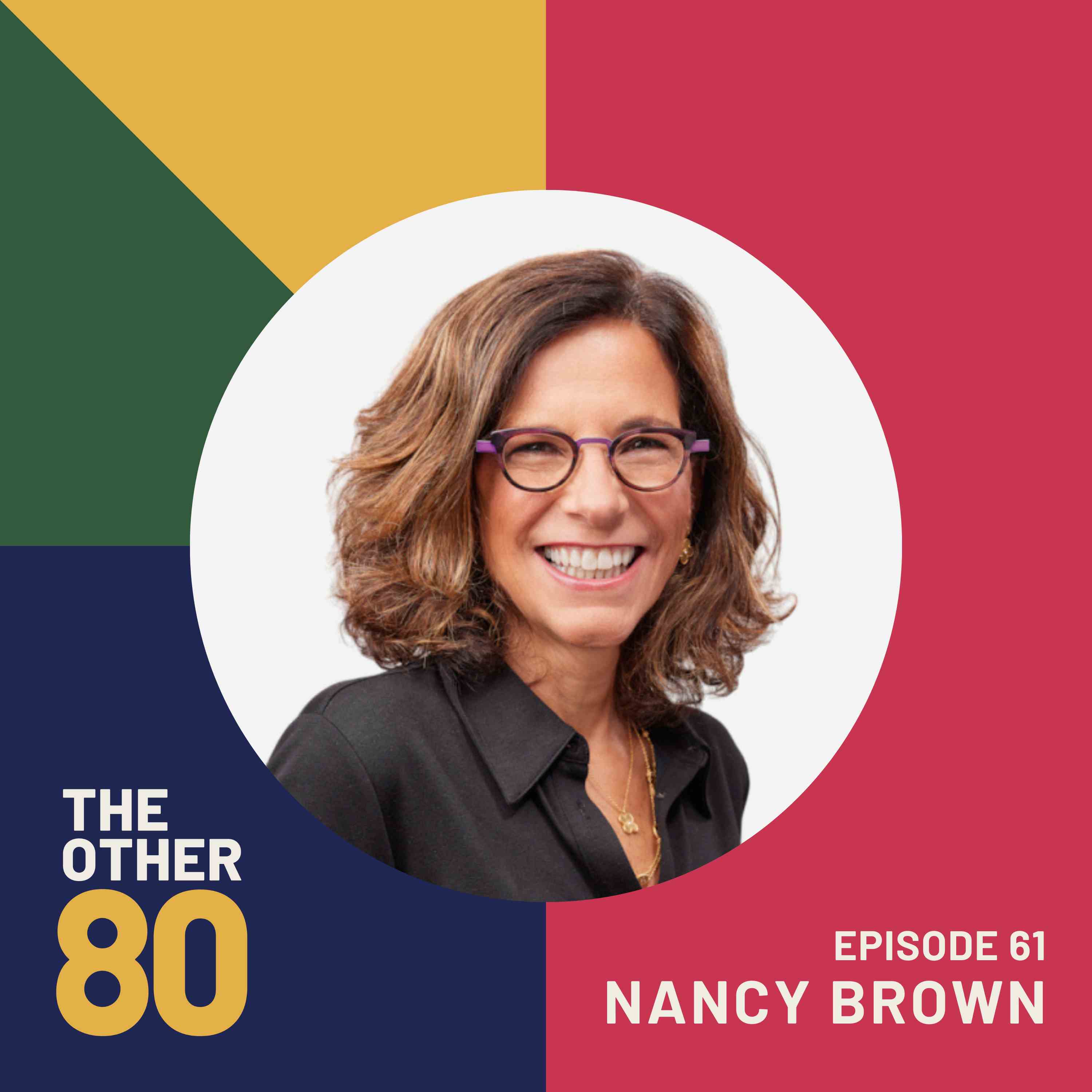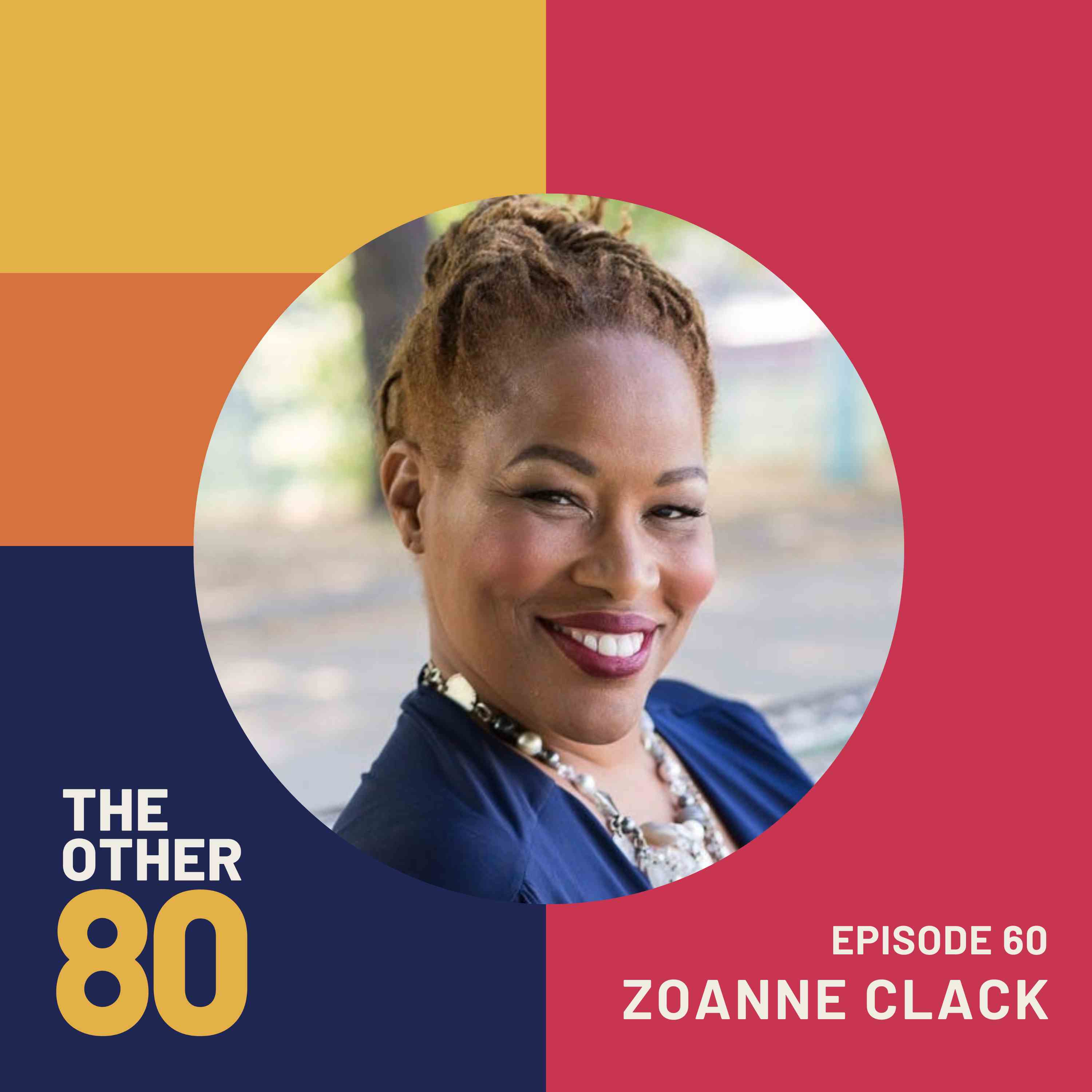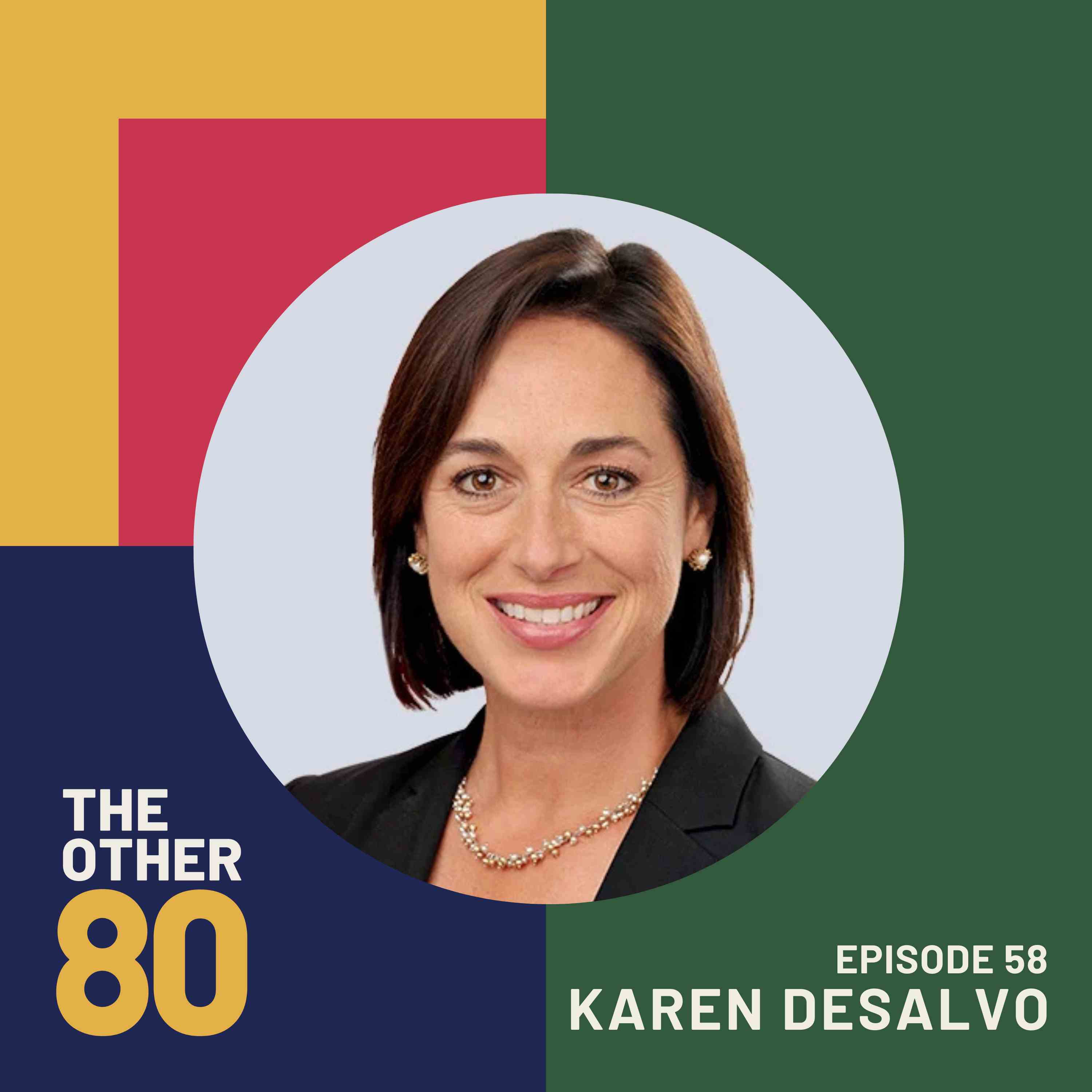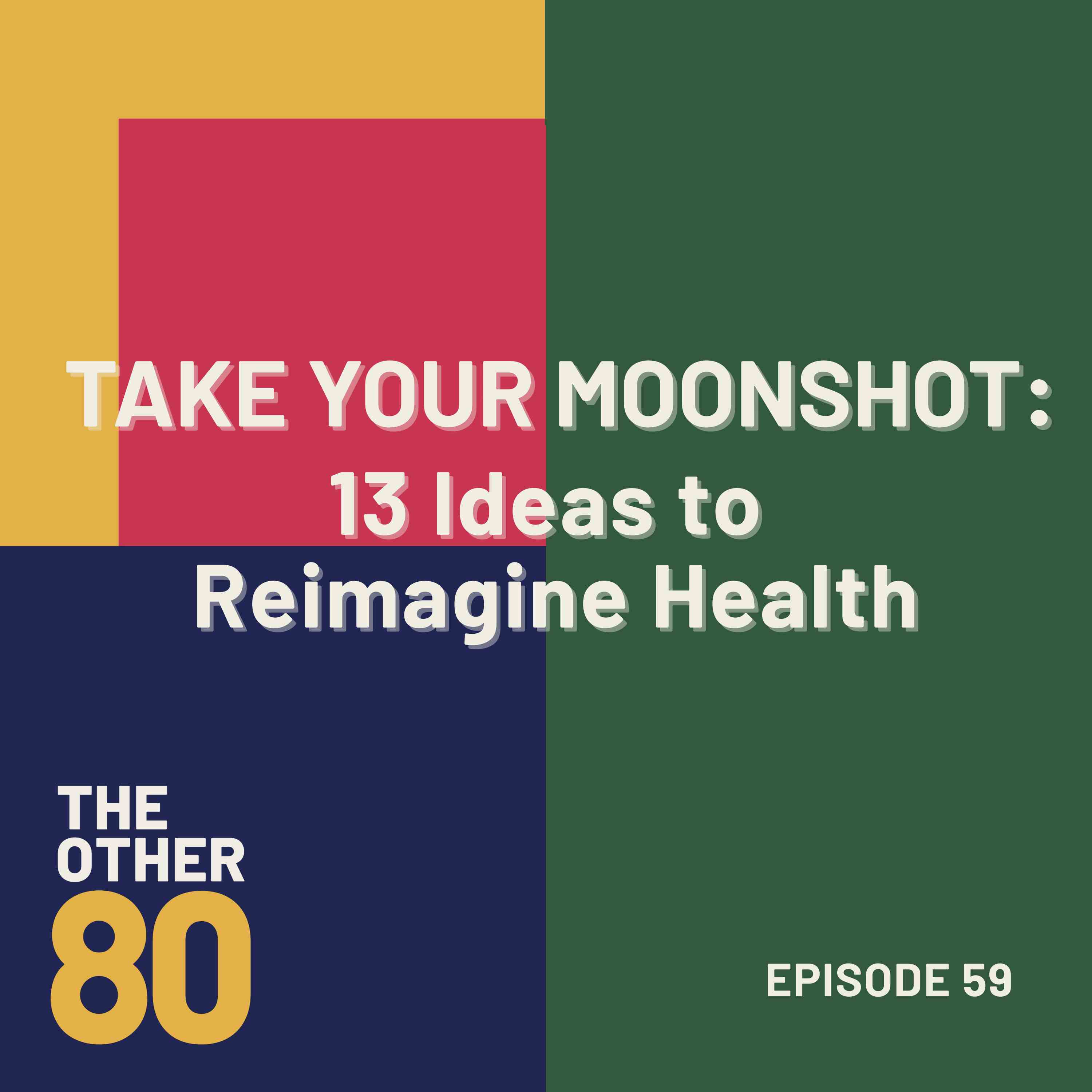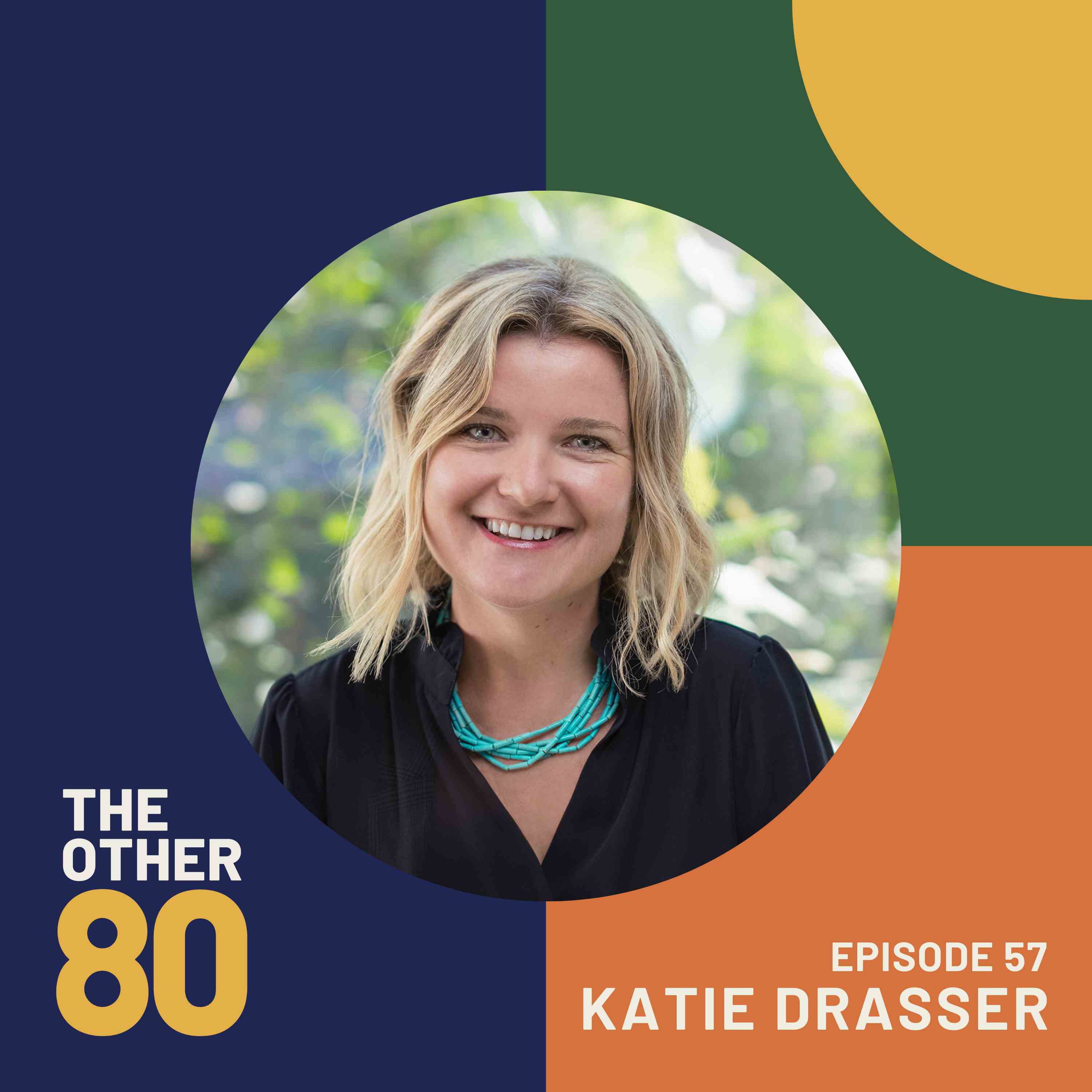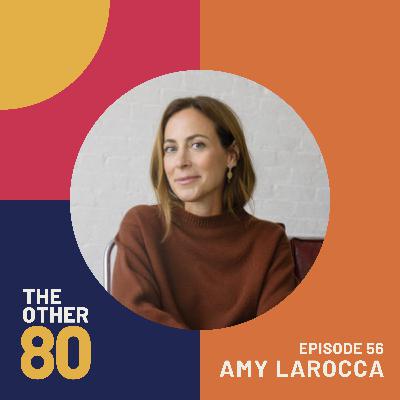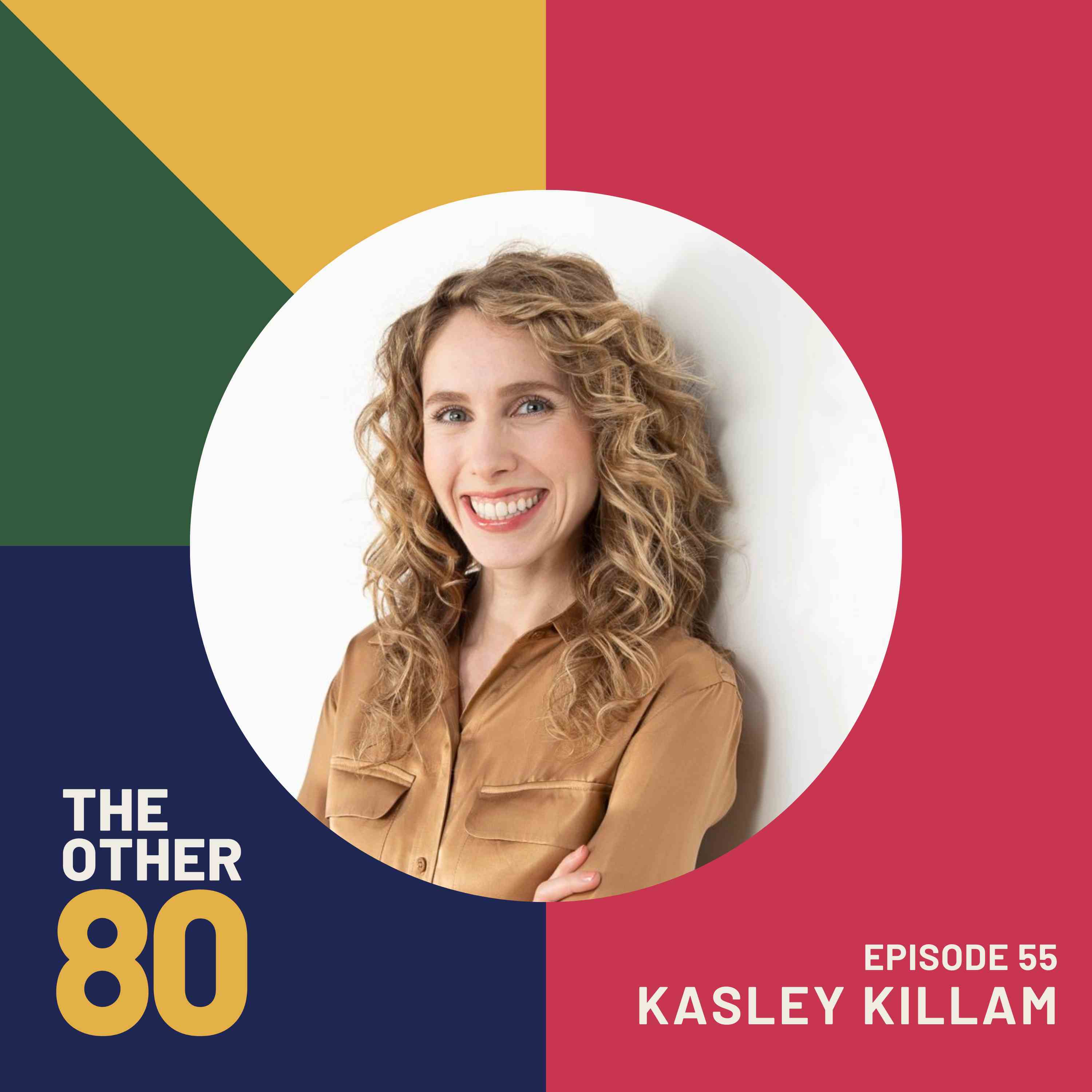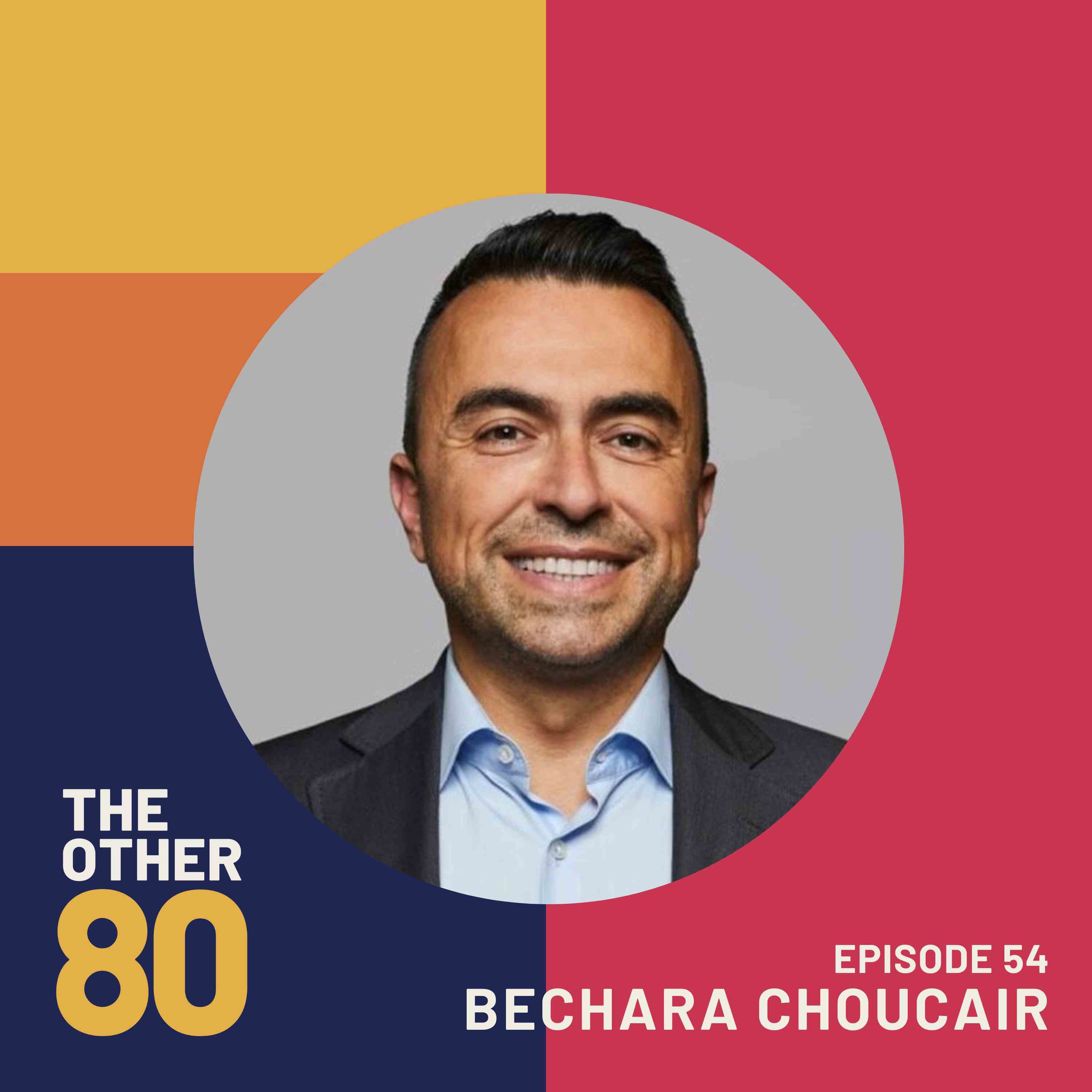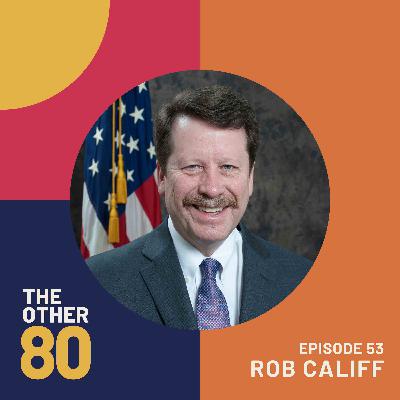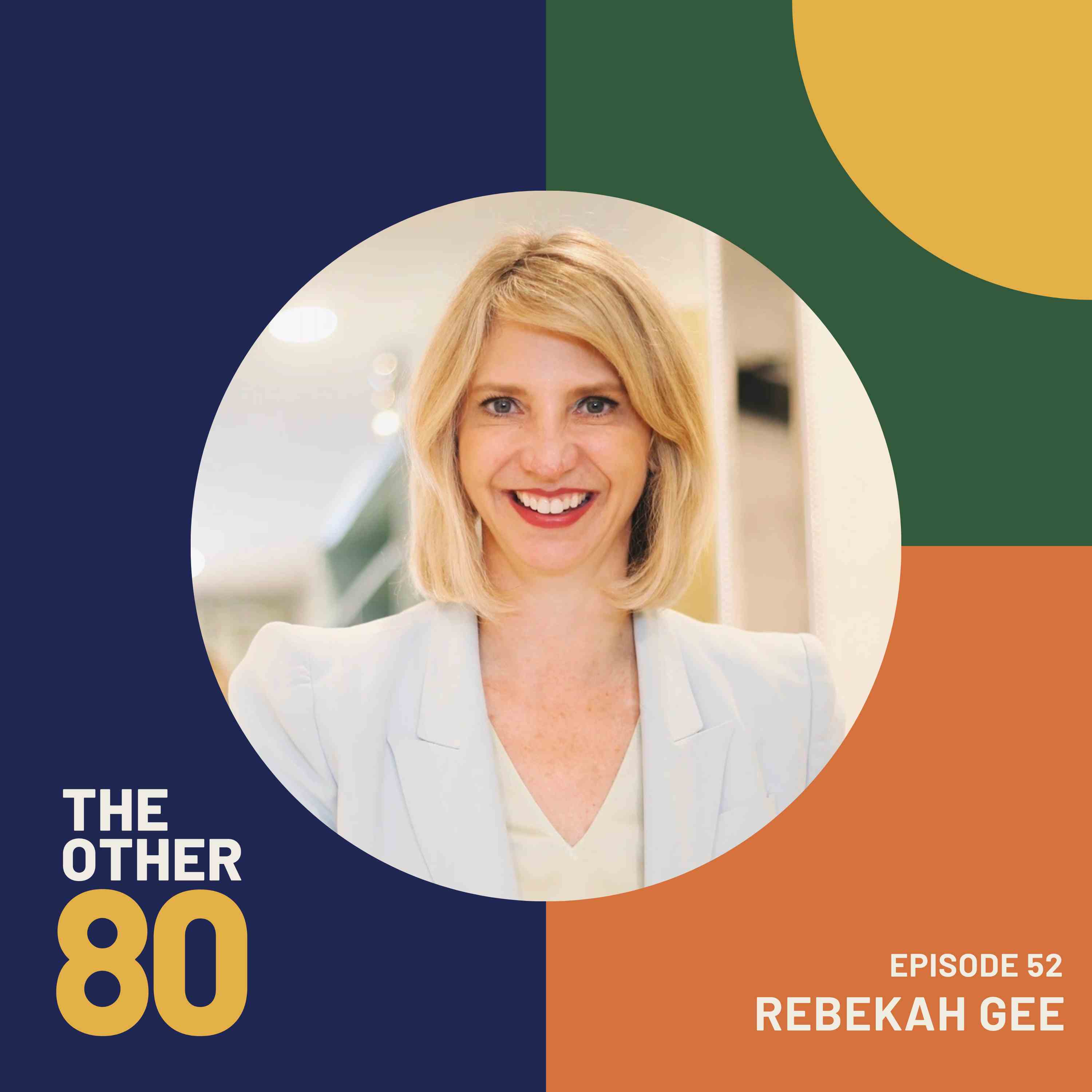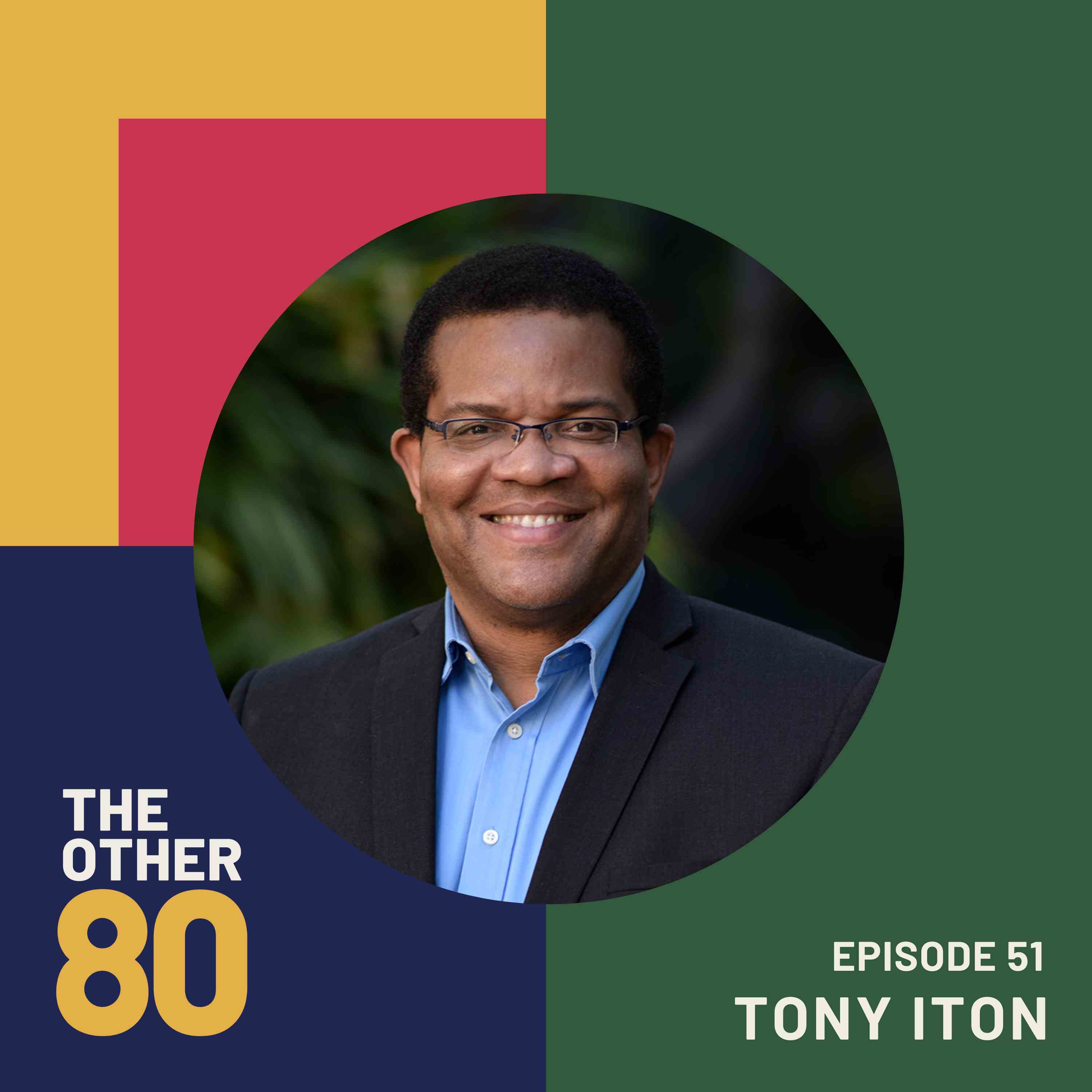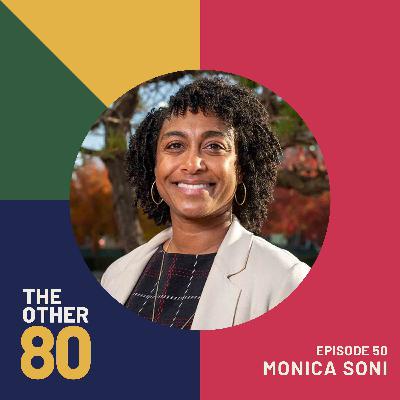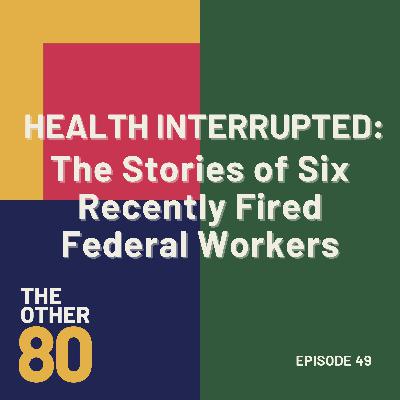Discover The Other 80
The Other 80

The Other 80
Author: Claudia Williams
Subscribed: 11Played: 190Subscribe
Share
© Copyright 2026 Claudia Williams
Description
The Other 80 podcast — brought to you by Claudia Williams at UC Berkeley School of Public Health — hosts real, honest dialogue about the things that help keep people healthy beyond traditional medical care, like housing, social connections and food, and the cutting edge policies, research and programs supporting whole person health. Join former White House advisor, entrepreneur and host Claudia Williams for deep conversations with the innovators, implementers, researchers and policymakers bringing these new models to life. We’ll talk about what’s working, what’s not and how to move towards whole person health rapidly and equitably across the US.
68 Episodes
Reverse
Not many digital health companies go public. And even fewer do so with a model designed to fix what’s truly broken in U.S. healthcare: episodic, fragmented care that fails to support the behavior change required to manage chronic disease. Omada Health CEO Sean Duffy joins Claudia to discuss the company’s journey from scrappy startup to public company—and his biggest ambition for the future: bending the nation’s chronic disease curve, both in cost and in human suffering. Claudia and Sean talk about:Omada’s “full stack” approach to chronic careWhat Omada’s IPO signals for digital health’s futureWhy GLP1s are a catalyst for behavior changeHow employers have quietly driven healthcare innovationSean says for Omada to actually shift what consumers pay out of pocket every month for their premiums we need to make big changes:“Affordability is the thing… That's the burden we're bearing as a country… And so, the only way to bring down healthcare costs are completely transformed care models. That's the only way… Thank goodness we're at a moment where those models are being supported and being scaled nationally. Thank goodness we're at a moment where technologies like AI can help add even more efficiency and help scale… Our only way out are different care models [that] leverage new technologies.”Relevant LinksAccess more info in Omada’s research libraryGet details on Omada Health’s S1 IPO Filing See the GLP-1 research Sean mentions: Omada members maintain weight loss after discontinuing GLPsGet more info on the CMS ACCESS model About Our GuestSean Duffy co-founded Omada in 2011 with the aim of merging medical trends and cutting edge technology to revolutionize health care of chronic disease as we know it. Today, he proudly serves as CEO and has been instrumental in steering Omada toward global recognition, such as being hailed a potential “medical triumph” by The New York Times, and one of Fast Company’s 50 most innovative companies in the world. A longtime devotee of healthcare and technology, Sean also founded a largely automated lifestyle business around Excel Everest, the interactive Microsoft Excel training tool he created. He formerly covered healthcare innovation as writer and editor for Medgadget, a popular medical technology blog. As CEO of Omada, Sean cares deeply about honing the organization’s exceptional products, values-driven approach to healthcare, and the innovative ways in which primary care can continue to better humanity. More recently, Sean has been spending more and more of his free time learning how to build and fly first-person view drones.SourceConnect With...
In 2025, New Mexico made history as the first state in the nation to commit to free childcare for all families. Elizabeth Groginsky, who leads this effort, joins Claudia to discuss what Governor Michelle Lujan Grisham has described as a “cradle-to-career education system”—and why investing early pays dividends from school readiness to family economic stability.Claudia and Elizabeth dive into:The critical link between fair worker wages and childcare capacityHow New Mexico’s early childhood trust fund is helping the state stay the courseWhy NYC and other cities and states want to replicate New Mexico’s moveUnexpected allies in the state’s quest to provide free childcareElizabeth underscores this is not only good social policy but also a smart financial investment: “If we believe the Heckman equation, if we believe the economists coming out of the Federal Reserve, this is your best investment. If it's a 7 % return, that's better than anyone's getting on any portfolio. It could be as high as a 13 % return… And so it's not going to be a question of ”How can we afford it?”, but “How can we not afford to invest in universal child care?””Relevant LinksFind out more about New Mexico’s Childhood Education and Care DepartmentRead more about Universal Childcare in New MexicoWhat is the Heckman Equation?See information on the “Developing Futures” CampaignAbout Our GuestElizabeth Groginsky has more than two decades of executive leadership experience administering public and private human service organizations at the national, state and local levels. She previously served as the assistant superintendent of early learning for the District of Columbia, a role she held for nearly five years where she administered a $160 million annual budget that funded programs to ensure equal access to quality services for the District’s most vulnerable children and their families. The District of Columbia was first in the nation in 2009 to pursue universal pre-K and today has the highest U.S. participation rate, with 85 percent of all 4-year-olds and 75 percent of 3-year-olds.She previously directed early childhood education for United Way Worldwide, where she helped expand the number of communities collecting and using population-based early childhood data; and she was the first executive director of the Early Childhood Data Collaborative, a national coalition to improve state policies and practices in the development and use of early childhood data system.Her experience with Head Start programs is extensive: She began as a family services coordinator, later administered a county program and then directed the Head Start Collaboration Office for Colorado. In Washington, D.C., she oversaw one of only eight state Early Head Start Child Care Partnership...
This week, we close out our three-part series on rethinking drug access and costs with a must-listen encore episode. After detailing the scope of the drug price crisis with Mark Cuban and how we can re-purpose drugs to treat rare illnesses with David Fajgenbaum, we turn to a leader who is actively changing the dynamic: Paul Markovich. Now the CEO of Ascendiun (the parent company of Blue Shield of California), Paul argues that healthcare affordability isn't just a patient pocketbook issue - it’s a massive economic crisis for the nation. In this episode, Paul and Claudia discuss:His conviction that reducing healthcare costs is essential to averting a national fiscal crisisThe upside-down economics that make PBMs reject cheaper drug pricesPaul’s candid advice on what it takes to be a courageous leader in a dysfunctional systemPaul Markovich challenges healthcare leaders to shift from explaining high costs to being accountable for lowering them:“Almost everybody in the entire value chain, whether it's health plans or hospitals or all the way through, they want to explain why healthcare is so expensive and why there's this inflation rate as if that absolves them of any responsibility to make it different. And so, what I really want is accountability, and a level of accountability that doesn't exist yet in our industry, to say, 'Hey, we own this' ". Relevant LinksPart 1: Listen to our episode “New Life for Old Drug with David Fajgenbaum”Part 2: Listen to our episode “Lessons in Disruption with Mark Cuban”Rethinking how Americans get affordable medicationsCalifornia’s new PBM reform lawAbout Our GuestPaul Markovich is president and chief executive office of Ascendiun, a nonprofit corporate entity as part of the new parent to the family of organizations that includes Blue Shield of California.Paul Markovich was president and chief executive officer at Blue Shield of California, a nonprofit health plan with $25 billion in annual revenue, serving 6 million members in the state's commercial, individual, and government markets. Paul launched and led numerous initiatives to drive innovation and help reimagine health care, including funding support for a statewide provider directory to make it easier for Californians to find physicians and facilities in their plan; supporting the development of a statewide health information network for patients’ records, enabling more seamless and holistic care; and investing in a partnership with the California Medical Association to help physicians pilot new care delivery models and leverage technology.At Blue Shield, Paul previously served as chief operating officer (responsible for healthcare services, network management, e-business, marketing, product development, and customer operations). He was senior vice president of the large group and CalPERS business units. He led the company’s product development unit, introducing numerous products and services such as the first California Health Maintenance Organization to allow self-referrals to specialists and...
Investor and healthcare disruptor Mark Cuban joins The Other 80 to talk about his online pharmacy, Cost Plus Drugs, that is bringing affordable drugs with transparent markups to American households. Mark lays out his basic formula for taking overhead and complexity out of the US healthcare system by disaggregating huge vertical businesses and disintermediating middlemen.In this episode, Mark Cuban pitches:That direct contracting with hospitals is his next healthcare disruptionWhy he thinks medical schools should be freeHow financial audits are a first step to lowering healthcare pricesWhy price transparency is contagiousMark thinks the best way to make change is from outside the system:“What makes [Cost Plus Drugs] radical is when we started, everybody presumed and expected that we would work within the system. That we would partner with the big three wholesalers that control 98% of the sale of drugs - that we would partner with the big three PBMs that control 85% of prescriptions. And, we did the exact opposite because we knew they were the problem.”Relevant LinksThe Cost Plus Drugs mission statementRead and watch Mark Cuban testimony for the Senate Special Committee on Aging More on Mark’s hospital negotiation strategyAbout Our GuestMark Cuban is an investor who lives for his family, his "Shark Tank" companies and the Dallas Mavericks. He is the owner of the 2011 World Champion Dallas Mavericks and bestselling author of "How to Win at the Sport of Business," and was an entrepreneur from the early age of 12 when he sold garbage bags door to door. Today, Cuban is the highly successful entrepreneur and investor with an ever-growing portfolio of businesses.A lifelong entrepreneur and investor, Cuban has started and built multiple industry-changing organizations including Costplusdrugs.com, which sells medications at industry low pricing with total cost transparency, which he founded with Dr. Alex Oshmansky. Named a winner of the GQ Men of the Year in 2006 and included in The New York Times Magazine's Year in Ideas, Cuban is recognized as being among the most influential people in both the cable and sports industries. He may be best known for his purchase of the Dallas Mavericks on Jan. 4, 2000. Under his leadership, the team's home games have become a total entertainment experience.Prior to his purchase of the Mavericks, Cuban co-founded the first commercial streaming company AudioNet, which became Broadcast.com, the leading provider of multimedia and streaming on the Internet. Broadcast.com was sold to Yahoo! Inc. in July 2000. MicroSolutions, a leading national systems integrator, was co-founded by Cuban and partner Martin Woodall in 1983, and later sold to CompuServe.In 2001, Cuban founded AXS TV (www.axs.tv) and sister network, HDNet Movies, the very first all high-definition TV network. He also co-owns the Landmark Theater chain, Magnolia Pictures, Magnolia Home Video and 2929 Productions along with partner Todd Wagner. With the release of the movie "Bubble" in 2005, Magnolia and Landmark Theaters pioneered the release of the movie's "day and date," meaning the
When David Fajgenbaum nearly died of Castleman disease for the fifth time, he decided to take fate into his own hands. Using his medical training, he searched for an existing drug that might save his life—and found one. Now his organization, Every Cure, is scaling the same approach to uncover hidden treatments for other diseases with no known cure. David and Claudia discussed: How Every Cure is using AI to test 75 million possible disease-drug combinations The perverse incentives that keep generic drug repurposing in the shadowsWhy the hardest part of innovation isn’t discovery, it’s getting proven treatments into clinical practiceRepurposing existing drugs makes so much sense. But as David points out, there’s no market for it:“Once a drug is generic.. the price is going to plummet… And even if you were to double the sales of your drug because you found a new disease area, now you've gone from 1% to 2% of what you got before… So there's no incentive whatsoever for our system to find a new use for a generic drug. Zero incentive.”Relevant LinksLearn more about Every CureRead David’s book Chasing My Cure: A Doctor’s Race to Turn Hope Into ActionWatch David's TEDTalk Listen to David’s Podcast interview with Adam GrantGet info on the Dada2 FoundationWatch a video on Matt Might’s story About Our GuestDavid Fajgenbaum, MD, MBA, MSc, is co-Founder & President of Every Cure and a physician-scientist at the University of Pennsylvania, where he is one of the youngest faculty members ever to receive tenure at Penn Medicine. He is also the national bestselling author of Chasing My Cure: A Doctor’s Race to Turn Hope Into Action, which is being adapted into a film by Forrest Gump producer Wendy Finerman. During medical school, Fajgenbaum discovered a treatment that saved his own life and founded the Castleman Disease Collaborative Network. He has advanced 13 more repurposed treatments for cancers and rare diseases and co-founded Every Cure to unlock more hidden cures from existing medicines which has received over $100M from ARPA-H and TED’s Audacious Project. He also serves on the Board of Directors for the Reagan-Udall Foundation for the FDA. One of the youngest recipients of multiple top NIH and FDA grants, Fajgenbaum has authored over 100 scientific papers in leading journals, including The New England Journal of...
Richmond, California used to be called America’s “Murder Capital”. But when city leaders chose a different path the city’s gun violence problem dramatically declined. DeVone Boggan and UC Berkeley’s Jason Corburn join Claudia to discuss their new book “Advancing Peace”, which chronicles their efforts to reduce gun violence in Richmond and other cities by focusing on those most likely to pull the trigger. Boggan and Corburn make a case for an approach to gun violence interruption grounded in deep mentorship, community investment and healing and accountability. We discuss:The book's core ideas: ending urban gun violence with redemptive loveHow public health overlooks community strengths by fixating on riskWhy Richmond’s Office of Neighborhood Safety sits in government - but outside policingDeVone says that the greatest demonstration of this approach has always been Richmond: “From the moment we implemented the Peacemaker Fellowship in 2010, within 18 to 24 months after we did that, there were dramatic, precipitous reductions in gun violence… Our argument has been [that] when you get the right people to get at the right people the right way over a long period of time, here's living proof and demonstration of what can happen…In 2014, we achieved a 40 year low in gun violence [in Richmond].” Relevant LinksRead Jason and DeVone’s book “Advancing Peace: Ending Urban Gun Violence through the Power of Redemptive Love”Listen to an episode from our archives with Megan Ranney on gun violence as a public health issueCheck out Richmond, California’s Office of Neighborhood SafetyRead more about Jason Corburn’s work at UC BerkeleyGet more information on DeVone’s organization Advance PeaceAbout Our GuestsDeVone Boggan serves as Founder and CEO of Advance Peace. Advance Peace interrupts gun violence in American urban neighborhoods by providing transformational opportunities to young men involved in lethal firearm offenses and placing them in a high-touch, personalized fellowship. By working with and supporting a targeted group of individuals at the core of gun hostilities, Advance Peace bridges the gap between anti-violence programming and a hard-to-reach population at the center of violence in urban areas, thus breaking the cycle of gun hostilities and altering the trajectory of these men’s lives. DeVone is the former Neighborhood Safety Director and founding director of the Office of Neighborhood Safety (ONS) for the City of Richmond, California. The ONS is a government, non-law enforcement agency that is charged with reducing firearm assaults and associated deaths in Richmond. Under his leadership as Neighborhood Safety Director, the city experienced a 71% reduction in gun violence between 2007 when the office was created and 2016. His work with ONS has been recognized in national publications and media, including the New York Times, Mother Jones, The Nation, Detroit Free Press, The Washington Post, TIME Magazine, PBS NewsHour, NPR, NBC Nightly News, ABC Nightline, CNBC, MSNBC, and CNN. Prior to his
Investor Nancy Brown joins us at Aspen Ideas Health to share her blueprint for impactful investments. Identify public health breakthroughs that deliver measurable cost and quality improvements — then show how they can thrive in the marketplace. You don’t have to look far to see this playbook in action. One of the year’s biggest health exits, Omada Health, is a digital version of the CDC’s Diabetes Prevention Program. At Oak HC/FT, Nancy has partnered with entrepreneurs who are redefining how America stays healthy — and she’s eager to see more people with public health roots take the leap into building impactful companies.Please note: this conversation happened before HR1 was passed, so big Medicaid cuts were a threat but not yet a reality when we spoke.In this episode, we discuss:Lessons from Todd Park in the early days of athenahealthHow to turn good ideas into great businessesNancy’s advice in an era of policy disruption: keep on building and proving valueThe lesson Kaiser Permanente is still teaching usNancy reminds us that in reality, even a brilliant idea needs to have ROI built in:“We look for entrepreneurs, for innovators, who have really defined a way in which to find a cohort of patients, it could be pregnant Medicaid moms... And they have identified if they apply a certain clinical process consistently to that population, they will get a consistently good outcome, quality outcome, and they can do it in a sustainable [way] at a sustainable price.”Relevant LinksRead Oak HC/FT’s AI Investment PolicyExplore businesses Nancy mentioned from Oak HC/FT’s investment portfolio:Maven ClinicOshi Health About Our GuestNancy Brown is a General Partner at Oak HC/FT, a leading venture and growth equity firm investing in transformative healthcare and fintech companies. Since joining Oak HC/FT at its inception in 2014, Ms. Brown has focused on identifying and supporting technology-enabled healthcare services that deliver measurable clinical and financial impact. She focuses on growth equity and early-stage venture investments in healthcare, serving on the boards of innovative companies such as Firefly Health, Groups Recover Together, InterWell Health, Maven Clinic, Oshi Health, Regard, Unite Us, and Wayspring. Her portfolio also includes Noom, TurningPoint Healthcare Solutions, Limeade (ASX: LME), OncoHealth, and OODA Health.Ms. Brown brings over three decades of operational and leadership experience to her investment role. Prior to Oak HC/FT, she was Vice President of Strategy and Business Development at McKesson Technology Solutions and Chief Growth Officer at MedVentive (acquired by McKesson in 2012). Previously, she served as Senior Vice President of Clinical Services and Corporate Development at athenahealth, and earlier held senior roles at McKesson and Harvard Community Health Plan. She also co-founded Abaton.com, one of the first web-based clinical solution companies, which was later acquired by McKesson.A graduate of the University of New Hampshire (B.S. in Zoology) and Northeastern University (MBA), Ms. Brown is an active mentor and advisor. She serves on Northeastern’s D’Amore‑McKim School of Business Dean’s Executive Council and is involved in the Roux Institute’s Future of Healthcare Founder Residency program.a...
Grey’s Anatomy Executive Producer and physician Dr. Zoanne Clack joins The Other 80 at Aspen Ideas: Health to talk about what public health leaders can learn from Hollywood storytelling. After training as a doctor and working for the CDC, Zoanne followed her childhood dreams and moved to Hollywood. With no job or warm leads, Zoanne set out to use the power of storytelling to drive health change. We discuss:What Shonda Rhimes taught Zoanne about standing in powerMaking it as a Hollywood “showrunner”Why public health leaders should lean into storytellingZoanne reminds us that stories - even about fictional characters - have the ability to help us move the world: “I think just having that, that feeling of belonging, that feeling of these are my people, and I am very interested in what they're doing and thinking is just a great way for the media in Hollywood to have impact.”Relevant LinksWatch the two episode Zoanne mentioned are her favourites: “Fight the Power” (Season 17, Episode 5) and “The Time Warp” (Season 6, Episode 15)See Zoanne’s filmographyAbout Our GuestZoanne Clack is executive producer and showrunner for “Grey’s Anatomy” and “Station 19.” An emergency medicine physician turned TV writer and showrunner, Clack is best known for her influential writing roles on these critically acclaimed ABC-TV series, where she combines her medical background and artistic flair, offering a unique and authentic touch. As a writer/producer on "Grey's Anatomy" since the show began, she has played an integral role in the show's longevity and cultural impact. She uses her knowledge of entertainment education to promote global public health issues through the media, advocating for representation and inclusivity and providing diverse characterizations as well as poignant social commentary. Clack is co-chair of the Norman Lear Center’s Hollywood, Health & Society program at USC’s Annenberg School of Journalism and serves on the board or as an advisor of several global health groups.SourceConnect With UsFor more information on The Other 80 please visit our website - www.theother80.com. To connect with our team, please email claudia@theother80.com and follow us on twitter @claudiawilliams and LinkedInSubscribe to The Other 80 on YouTube so you never miss our video extras or special video episodes!
AI is going to transform healthcare - but how do we ensure it does so responsibly, equitably and ethically? Google’s former Chief Health Officer, Dr. Karen DeSalvo, says that AI could be public health’s new best friend - if we use it in the right ways. Karen sits down with Claudia at Aspen Ideas Health to talk about her longtime career as a public health leader and where she sees a role for AI in helping to take some heat off public health communicators. She’s interested in how AI can support - not replace - our human values. We discuss:How AI health agents could personalize and simplify care, especially for patients navigating complex health challengesWhy government should act as both regulator and convener to shape the future of how we use AI in healthOur failure to scale and implement big ideas because we keep adding new layers instead of simplifyingKaren underscored that AI-enabled robots will bring new ethical challenges:“I think when robotics becomes more commonplace, that also raises some of the need for us to be very thoughtful as a society about the ethical challenges when there's a physical manifestation of the models that's not just in a computer screen or even through your glasses, but as the robots get more and more humanoid.”Relevant LinksRead the Forbes article on Karen’s tenure at Google Watch a Video where Karen introduces “Check Up”Read the Association of State and Territorial Health Officials’ spotlight on KarenRead Karen’s article about “Public Health 3.0”Check out Karen’s Health Affairs article on the future of public health About Our GuestDr. Karen DeSalvo is a physician executive working at the intersection of medicine, public health, and information technology to help everyone, everywhere, live a healthier life. She leads a team of experts at Google who build helpful products, develop AI solutions focused on some of the biggest health challenges and bring information and insights to consumers, caregivers and communities with the aim of democratizing access to health and healthcare. She provides clinical leadership for Google employee health, including as part of the company COVID response team. Prior to joining Google, Dr. DeSalvo was National Coordinator for Health Information Technology and Assistant Secretary for Health (Acting) in the Obama Administration. Dr. DeSalvo served as the New Orleans Health Commissioner following Hurricane Katrina and was previously Vice Dean for Community Affairs and Health Policy at the Tulane School of Medicine where she was a practicing internal medicine physician, educator, and researcher. She is co-founder of the National Alliance to Impact the Social Determinants of Health. Dr. DeSalvo serves on the Council of the National Academy of Medicine and the Board of Directors for Welltower.SourceConnect With UsFor more information on The Other 80 please visit our website -
In a time where we need hope and innovation more than ever, we asked 13 health leaders—all guests on this podcast—what they would do to reimagine health. Tune into the episode to hear what they shared (in order of appearance):David Zipper, Senior Fellow, MIT Mobility Initiative Maya Petersen, Professor of Biostatistics, Epidemiology and Computational Precision Health, UC Berkeley Kody Kinsley, Senior Policy Advisor, Johns Hopkins University (former Secretary of HHS in North Carolina)Theresa Cullen, Director of Public Health, Pima County, AZ Anne Zink, Lecturer & Senior Fellow, Yale School of Public Health (former Chief Medical Officer, AlaskaKaren DeSalvo, former Chief Health Officer, Google Palav Babaria, Chief Quality and Medical Officer, California Department of Health Care Services Jacey Cooper, President, Precision Health Strategies (former Medicaid Director in California)Pooja Mittal, Chief Health Equity Officer, Health NetNatalie Davis, Co-Founder and CEO, United States of CareSteve Downs, Co-Founder, Building H Katie Drasser, CEO, Rock HealthZoanne Clack, Executive Producer, Grey’s Anatomy Connect With UsFor more information on The Other 80 please visit our website - www.theother80.com. To connect with our team, please email claudia@theother80.com and follow us on twitter @claudiawilliams and LinkedInSubscribe to The Other 80 on YouTube so you never miss our video extras or special video episodes.
When we think about digital tools and technology, we think of them as moving fast. Katie Drasser, CEO of Rock Health, joins me to discuss what a “slow tech” approach to health innovation could look like. It would ground innovation in participatory design, build community trust and aim for long term impact, not just rapid scaling.We discuss:How she’s working to fix the broken investment cycle for women’s healthWhy impact—not just return—should guide the future of health innovationThe big differentiator for youth mental health companies? Kids are at the table Katie reminds us that designing for the most overlooked ends up helping everyone:“There's that theory – the curb cut theory – [that says] if you design for the most marginalized, if you design for the most overlooked, it's actually better for everybody. And so… how might we design for those most left out? And actually, the folks that are always included would actually benefit too.”Relevant LinksVisit the Rock Health websiteListen to Podcast episode with Katie Drasser and Carolyn WitteRead the Rock Health report on women as digital health consumersCheck out MindRight Health’s website - the youth mental health texting resource Katie mentioned in this episodeAbout Our GuestKatie is an entrepreneurial leader committed to equality and justice who has launched groundbreaking, inclusive programs that address complex global issues with a focus on public health innovation and the role of innovative financing and leadership in systems change. As the CEO of RockHealth.org, she leads a team of experts in health equity, social enterprise and design to encourage more equitable innovation in digital health. Previously, Katie curated health content for the Aspen Ideas Festival and was Managing Director of the Aspen Global Innovators Group, where she led global leadership programs to address poverty alleviation and human rights. Katie has worked nationally and around the world on initiatives including HIV/AIDS treatment strategies in Romania, private health services delivery in Myanmar, and the scale up of Kenya’s national emergency medical system. She also built a range of start-ups, designing a network of charter schools, and developing Good Capital, a venture fund that invests millions in social enterprises like The Hub Bay Area and the Social Capital Markets Conference.SourceConnect With UsFor more information on The Other 80 please visit our website - www.theother80.com. To connect with our team, please email claudia@theother80.com and follow us on twitter @claudiawilliams and LinkedInSubscribe to The Other 80 on YouTube so you never miss our video extras or special video episodes!
On the surface, what the wellness industry is offering feels like an antidote to our fragmented and fast-paced lives. Influencers and companies use words like "mindfulness" or “whole foods” or “self care” to get our stressed out, burnt out buy in. But, somewhere along the line those promises start to morph into luxury services, expensive memberships and supplements you never knew you needed. In her book “How to Be Well” former fashion journalist Amy Larocca explores the blurred line between healing and branding in a $6 trillion dollar industry.We discuss:Why our current wellness craze mirrors 1930s pre-Nazi GermanyHow Abraham Flexner completely changed how we teach medicine in the US for better – and for worseWhy the spiritual and community void left by declining religious participation leads people to look to the wellness industry for bothAmy says what attracts people to the modern fitness class has parallels to religious practices:“So if you look at what happens in ritual religious gatherings… You see a lot of that replicated in a lot of these boutique fitness settings. You have ritual, you have music, you have ecstatic movement, you have charismatic leaders, you have a sermon. And these sermons have increasingly moved away from talk of muffin tops and bikini bodies and losing that whatever it is, to kindness, community, thinking about your place in the world, thinking about taking the energy that you are building up in that room and spreading it forward. ”Relevant LinksBuy Amy’s book “How to Be Well: Navigating Our Self-Care Epidemic, One Dubious Cure at a Time”Read this Wikipedia page on Martine Rothblatt’s robot replica of her wife BinaCheck out this article on the impact of the Flexner report on US medicineRead the book “McMindfulness” Amy mentions in the episodeSign up for Lamar’s SoulCycle classAbout Our GuestAmy Larocca is an award-winning American journalist. She spent 20 years working at New York Magazine as both Fashion Director and Editor at Large. Her writing has appeared in the New York Times, Vogue, Town & Country, and the London Review of Books, among others. She lives with her family in New York and North London.SourceConnect With UsFor more information on The Other 80 please visit our website - www.theother80.com. To connect with our team, please email claudia@theother80.com and follow us on twitter...
Loneliness isn’t just a feeling - it’s a public health crisis. The number of hours we spend with friends is rapidly decreasing, more and more Americans report feeling lonely, and loneliness is linked to bad health outcomes like risk of premature death, heart disease, stroke, depression and anxiety. Kasley Killam, author of “The Art and Science and Connection”, joins us to talk about why social health should be the third pillar of wellness alongside physical and mental health.We discuss:The surprising finding that connected communities were more resilient during the COVID pandemicKasley’s 100+ day experiment with acts of kindnessHow small investments in social health have big ripple effectsHer nuanced views on AI companionsKasley talks about how vulnerability is key to building trust and human connection:“When you share something a little vulnerable that goes beyond… surface level and small talk, that is like this magical way of deepening connections, right? It builds trust, it builds intimacy, it makes us relatable, it helps us get to know each other better. And so … there I am with a complete stranger who… I've maybe shared something on stage or in conversation, they're now sharing something really intimate and vulnerable about their life and that just creates this beautiful moment. ”Relevant LinksGrab Kasley’s book “The Art and Science of Connection”See Kasley’s TED talk: Why Social Health is Key to Happiness and LongevityGet more info on the APA poll on social connectionRead an Article on Kasley’s 108-day experiment with acts of kindnessRead the Surgeon General’s advisory on loneliness as a pandemicSee this Article on Scan Health Plan’s “Togetherness” programAbout Our GuestKasley Killam is a leading expert in social health and author of The Art and Science of Connection: Why Social Health is the Missing Key to Living Longer, Healthier, and Happier. As a Harvard-trained social scientist, 2X TED speaker, sought-after advisor, and award-winning founder, Killam has been dedicated to improving well-being through human connection for nearly 15 years. Globally recognized for her thought leadership on social health, Killam’s collaborations with top organizations like Google, the US Department of Health and Human Services, and the World Economic Forum contribute to building more socially healthy products, workplaces, and communities. Discover her insights in outlets like The New York Times, Forbes, NPR, CNBC, and The Washington Post and join her newsletter community at www.kasleykillam.com. SourceConnect With UsFor more information on The Other 80 please visit our
What if instead of treating illness we also confronted the reasons Americans get sick in the first place? That’s the origin of this podcast and also the four billion dollar question Dr. Bechara Choucair is tackling at Kaiser Permanente as Chief Community Health Officer. He joins Claudia to talk about the organization’s focus on climate change and health, workforce pipelines and addressing unmet social needs.We discuss:The surprising fact that two-thirds of KP’s members (who are mostly covered by employer insurance) have at least one unmet social needHow the Common Health Coalition is building bridges between healthcare and public healthWhat KP is doing to tackle a big problem limiting the mental health workforce: only 57% of masters trained therapists get licensedWhat it took for KP to achieve carbon neutralityBechara reminds us that bridge-building is a crucial part of this community health work:“We need more and more bridges between public health and healthcare... [They have] operated as two separate disciplines operating in their own silos... [When] there is a public health emergency we build more bridges, we strengthen those bridges that already exist. And then when that public health emergency subsides, we all retreat into our own disciplines and we continue that siloed journey.”Relevant LinksRead about the NAM initiative on climate change and healthExplore why the US needs more community health workers from this articleLearn more about the Common Health CoalitionDive into details on KP’s sustainability journeyAbout Our GuestDr. Bechara Choucair, MD, is executive vice president and chief community health officer for Kaiser Foundation Health Plan, Inc. and Hospitals — known as Kaiser Permanente, one of America’s leading integrated health care providers and not-for-profit health plans. Dr. Choucair oversees the organization’s national community health efforts and philanthropic giving activities aimed at improving the health of its 12.2 million members and the 68 million people within the communities it serves.Previously, Dr. Choucair served as senior vice president, Safety Net and Community Health, at Trinity Health, and was the commissioner of the Chicago Department of Public Health.Dr. Choucair, a family physician by training, completed his Family Practice Residency at Baylor College of Medicine in Houston, Texas. He holds an MD from the American University of Beirut and a master’s degree in health care management from the University of Texas at Dallas.SourceConnect With UsFor more information on The Other 80 please visit our website - www.theother80.com. To connect with our team, please email claudia@theother80.com and follow us on twitter...
The US leads the world in biomedical innovation, with about 40% of patents being filed by US scientists and companies. The FDA plays a critical role in supporting and enabling this innovation pipeline and our guest Dr. Robert Califf was commissioner of the agency not once, but twice under Presidents Obama and Biden. He joins us to talk about what Americans should know about FDA’s critical role and the threats to its functioning from the dramatic cuts the Trump administration has made over the last three months.We discuss:The broad sweep of FDA’s purview from drugs and medical devices to cosmetics, food, tobacco and dog foodConcern that the FDA is now “decapitated and eviscerated” from the massive and multiple rounds of dismissalsWhile most industries want less regulation, the pharma industry wants more information and guidance from the FDACaliff has been affiliated with Duke for 50 of its 100 years, but a part of his heart is still with ClemsonWhat would Califf’s “Make America Healthy Again” agenda be?“We need to develop reliable, repetitive sources of information that help people do things that are healthy and beneficial. That part of MAHA I like a lot…The second thing is… I'm developing connections with people who are thinking differently about primary care because I think everybody agrees there's no way you can take the current workforce and deliver what's needed. So it's got to be linked up with AI and digital technologies, but also with a very different looking workforce that gets paid differently, has more respect.”Relevant LinksRead Califf’s WSJ opinion letter: “Work with the Bureaucracy, Not Against It”Peter Marks’ resignation letter NYT article on the impact of FDA layoffsCaliff’s “Public Health on Call” podcast episode on the state of the FDA Opinion article from 7 previous FDA commissioners on how recent changes are undermining credibility of the FDAAbout Our GuestRobert M. Califf, MD served as FDA Commmissioner under Presidents Biden and Obama. Califf is a nationally recognized expert in cardiovascular medicine, health outcomes research, health care quality, and clinical research, and a leader in the growing field of translational research. Prior to rejoining the FDA in 2022, Califf was head of medical strategy and senior advisor at Alphabet, contributing to strategy and policy for its health subsidiaries Verily Life Sciences and Google Health. Prior to Alphabet, he was professor of medicine and vice chancellor for clinical and translational research at Duke University, director of the Duke Translational Medicine Institute, and founding director of the Duke Clinical Research Institute. Dr. Califf is a graduate of Duke University School of Medicine. He completed a residency in internal medicine at the University of California, San Francisco and a fellowship in cardiology at Duke.Connect With UsFor more information on...
Could primary care at home unlock better health and lower costs for American families? Rebekah Gee, a physician and policymaker turned entrepreneur, joins us to talk about the big bet her company Nest Health is making on home-based primary care. It’s a model that makes sense for families and delivers results. In the first year of operations Nest doubled primary care visits, reduced ER visits, and increased childhood immunizations.We discuss:The sound economics behind the Medicaid expansion in LouisianaWhat she learned from her mentor, astronaut John GlennHow to close the primary care gap for children and parents Whether ultra processed foods are the next tobaccoRebekah shared about an exchange with Elon Musk on the short sightedness of Medicaid cuts:“So Nest came out with our savings numbers. We put out some really good information about the health of children and the opportunities. And Elon Musk retweeted it. So as a result of that, we actually got a lot of press. But I wrote back to him and said, ‘I'm glad you like this concept. And just remember, don't cut health care for children because we'll be paying far more for that than you will ever save.’ ”Relevant LinksRead more about Nest HealthWatch: Dr. Rebekah Gee on what entrepreneurs need to know about MedicaidLearn about Alaska’s Nuka system of careEvidence from the Nurse Family Partnership about the impact of home-based careAbout Our GuestDr. Rebekah Gee is the founder and CEO of Nest Health, a technology-enabled whole-family primary care provider providing care at home and virtually to Americans who struggle to receive comprehensive care. Previously, Dr. Gee served as Secretary of Health for the State of Louisiana. In that cabinet-level role, she led the expansion of Medicaid. As Secretary, she was responsible for nearly half the state budget including Medicaid, public health, aging and adult services, licensure, sanitation, disability services, and a nearly 2,000 bed state hospital system. As Secretary, she developed a first-in-the-nation subscription model for the drugs that cure Hepatitis C that is being used as a national and international model for increased drug access and affordability.Dr. Gee has served as an advisor to multiple Governors, presidential campaigns, and policy efforts at the state and national level. Her board service includes medical advisory support of public companies Select Quote and 3D systems. She has also served as a board member or advisor to Ready Responders, Ouva, Noble, NCQA, NQF, IHI, the Penn Center for Behavioral Economics, and the Duke-Margolis Institute.Connect With UsFor more information on The Other 80 please visit our website - www.theother80.com. To connect with our team, please email claudia@theother80.com and follow us on twitter @claudiawilliams and LinkedInSubscribe to The Other 80 on YouTube so you never miss our video extras or special video...
Whether it's the civil rights movement, marriage equality or even seatbelt laws, community organizing is how change happens in America. In this encore episode, Dr. Tony Iton shares a masterclass in how social, political and economic power shape health outcomes and how to meaningfully shift those dynamics when it matters most. Tony argues that reinvigorating democracy at the community and local level is where we should be doubling down. This episode was impactful when it was first released but is even more relevant and timely now.We discuss:The ABC’s of health for all: agency, belonging and social contractsHow California communities applied this framework to dramatically change school climate and reduce suspensionsThe role of narrative in shaping policy choices towards belonging or exclusionTony digs into why power matters in health:“We're talking about essentially community-level power, what we refer to as community agency, and we basically theorized that if we could build social, political and economic power in a critical mass of people in 14 low-income communities that have documented health disparities, that we could improve the health status of those populations over a 10-year period… We weren't thinking that there was something that we needed to do to people. In other words, it wasn't like increasing access to healthcare or, you know, enhancing the quality of public health education. This was fundamentally about unleashing the power of communities to [determine how resources are distributed].“Relevant LinksRead about our UC Berkeley School of Public Health Social Impact Fellows (Tony included)Learn more about the California EndowmentVisit Dr. Tony Iton’s websiteRead Dr. Tony Iton’s “Understanding How Health Happens – Your Zip Code is More Important Than Your Genetic Code” by Dr. Tony Iton, MD, JD, MPH and Robert K. Ross, MD.Order “Advocacy for Public Health Policy Change: An Urgent Imperative” which is co-authored by Dr. Tony ItonAbout Our GuestDr. Tony Iton is a Social Impact Fellow and lecturer at UC Berkeley School of Public Health. He was the Senior Vice President of Programs & Partnerships at The California Endowment from October 2009 to June 2024.Prior to his appointment at The Endowment, Iton served from 2003 as both the director and County Health Officer for the Alameda County Public Health Department. In that role, he oversaw the creation of an innovative public health practice designed to eliminate health disparities by tackling the root causes of poor health that limit quality of life and lifespan in many of California's low-income communities.Iton also served for three years as director of Health and Human Services and School Medical Advisor for the City of Stamford, Connecticut. Concurrent to that, he also served as a physician in internal medicine for Stamford Hospital's HIV Clinic. In addition, Iton served for five years as a primary care physician for the San Francisco Department of Public Health.Iton's varied career also includes past service as a staff attorney...
California is full of hardworking people—nurses, teachers, delivery drivers, baristas—who keep our communities running. Many of them live paycheck-to-paycheck, making too much to qualify for most government benefits, but not enough to afford the basics. For nearly 2 million Californians, Covered California provides a critical lifeline, offering access to affordable health insurance and now basic needs support. Dr. Monica Soni, Chief Medical Officer of Covered California, joins Claudia to talk about the program’s important and expanding role in the California landscape. We discuss:What the working poor really need: breathing room in their budgets to afford healthy foodOperating a startup within governmentHow collaboration across Covered California, Medi-Cal and CalPERS – which together cover 45% of Californians – will drive faster and more aligned health improvement in CaliforniaMonica’s team uses experiments and user research to shape every aspect of the program:“But I do think in our DNA is this idea of innovation. In-house, we have a research team that does randomized controlled trials. We're committed to hyper transparency. Almost all of our data is released. We stratify it by everything we can think of to really identify where there might be pockets of coverage that aren't there or outcomes that are suboptimal. And we do a lot of deep listening with consumers and with the community to help inform what we do.“Relevant LinksRead more about Covered California’s Innovative Program to Improve Population HealthSee the details on Covered California’s Data and Research toolsAnnouncement of the launch of Covered Californians Population Health InvestmentsMore info on how Covered California uses email nudges for enrollmentAbout Our GuestDr. S. Monica Soni is the Chief Medical Officer, and a Chief Deputy Executive Director at Covered California, leading the organization’s Health Equity and Quality Transformation division. In this capacity she is responsible for health equity, health care strategy, medical policy, and other clinical operations to continuously improve not only the health services provided through Covered California’s contracted health plans, but also California’s delivery system.She is a board-certified internal medicine physician with more than a decade of experience working in both inpatient and outpatient settings and continues to see patients. She is an Associate Professor within the UCLA Department of Medicine and the Charles R. Drew University Department of Internal Medicine, where she is committed to residency diversification and pipeline development.Prior to joining Covered California, Dr. Soni served as Associate Chief Medical Officer within Evolent Health focused on the delivery of high-quality, cost-effective specialty care for the over 16 million supported Medicaid lives across the United States. During her time at the organization, she played a critical role in clinical informatics, provider engagement, value-based strategies and innovation. Dr. Soni also served as the Director of Specialty Care for the Los Angeles County Department of Health
In the wake of massive layoffs at HHS - and so many other federal agencies and programs - we are sharing the powerful stories of federal workers who had no choice but to leave their important work when they were fired post-election. You’ll hear from a former marine who was improving primary care for fellow veterans, a child of farmworkers who was expanding economic opportunities for rural communities and a technologist who was improving the organ transplant distribution system. They used their exquisite talents to help communities thrive and connect people with care they desperately needed. And now they aren’t.Relevant LinksIf you’re interested in hiring one of the amazing leaders who shared their story in this episode, connect with them on LinkedIn:Andrew Lennox: https://www.linkedin.com/in/andrewlennoxmi/Aileen Wood: https://www.linkedin.com/in/aileen-wood-163585108/Jesus Morillo: https://www.linkedin.com/in/jesusmurillo97/Amy Paris: https://www.linkedin.com/in/amy-paris-4950831/Ashley Hackett: https://www.linkedin.com/in/ashley-hackett/Jennifer Robinson: https://www.linkedin.com/in/jennifer-robinson-phd-mph/Connect With UsFor more information on The Other 80 please visit our website - www.theother80.com. To connect with our team, please email claudia@theother80.com and follow us on twitter @claudiawilliams and LinkedInSubscribe to The Other 80 on YouTube so you never miss our video extras or special video episodes!
With the House approving a plan to slash $880 billion from the federal budget, all eyes are turning to Medicaid as the most likely source of cuts. I asked former North Carolina Health Secretary Kody Kinsley, KFF’s Larry Levitt and California Health Care Foundation’s Katie Heidorn to join me to discuss the likely shape and impact of proposed cuts, and take questions from UC Berkeley students. Kody called it a “self-licking ice cream cone”—cuts that destabilize the government, leading to further cuts. Larry warned of formula battles that will soon erupt. Katie laid out the devastating effects on state budgets.We’ve also released this episode as a full video episode on YouTube. Subscribe to The Other 80 YouTube channel for video extras, video episodes and viral healthcare policy content. Click here to watch this episode in full. Watch the full VIDEO version of this episode: https://www.youtube.com/watch?v=X110GShMTtE&t=52sRelevant LinksKFF: The Public’s View on Potential Changes to MedicaidKFF: Impact of Medicaid Per Capita Cap Kody Kinsley testimony to Congress on MedicaidPre-election episode with Larry LevittKFF: Can Republicans cut $880 Billion without Slashing Medicaid?CBPP: Impact of Medicaid CutsCHCF: Defending Medi-Cal in 2025About Our GuestsKatie Heidorn is the director of state health policy at CHCF, where she leverages the foundation’s data, expertise, and partnerships to help California’s state government make informed decisions about health care. Katie is based in CHCF’s Sacramento office.Katie has nearly two decades of experience working in health policy, government, and nonprofits and is a skilled leader, facilitator, and communicator. She comes to CHCF after more than two years as executive director for the Insure the Uninsured Project (ITUP). Before that, Katie was the government affairs advocate for Health Net and the development director and policy lead at the nonprofit California Coverage and Health Initiatives. Katie spent a decade in California state government, including as a deputy secretary for the California Health and Human Services Agency and principal consultant in the Senate Appropriations Committee. She is also an alumna of the California Senate Fellows Program.Katie received her master’s degree in Public Administration from the University of Southern California and bachelor’s degree in Biochemistry and Molecular Biology and Comparative Literature from the University of California, Davis.Source: https://www.chcf.org/person/katie-heidorn/Kody...




